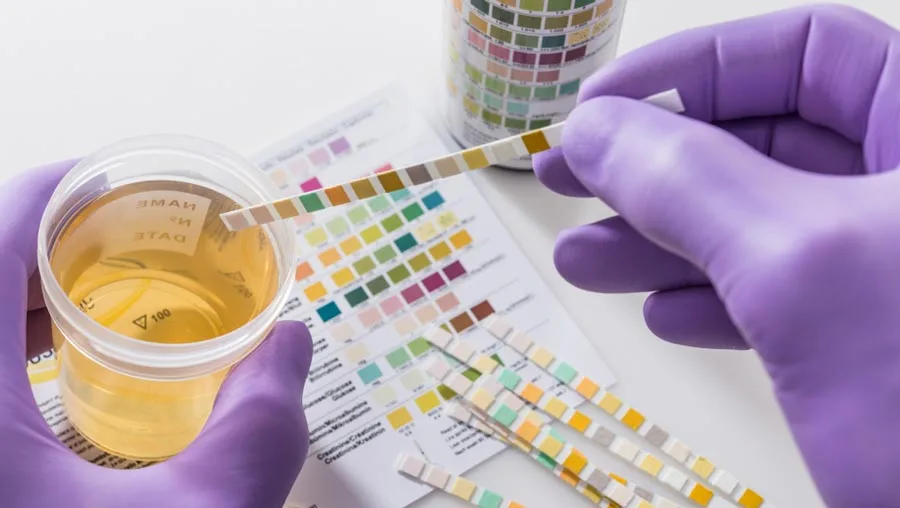Understanding Detection Times for Crack Cocaine and Getting Help at South Shores
Substance abuse, especially with illegal drugs that have unknown origins, like crack cocaine, is incredibly dangerous. However, the grip that serious drug use and addiction can have on a person is hard to shake, so overcoming drug abuse is no easy task. You may already be very familiar with this fact.
If you or a loved one are struggling with a crack cocaine addiction, it’s important to know how long crack stays in your system so you can avoid harmful drug interactions or overdosing. People in recovery who are looking for a job that requires a drug test may also ask, “How long does crack stay in urine?” to know whether they’ll pass their drug test.
When you’re ready to stop worrying about how crack cocaine use is affecting you and whether it’s still in your system or not, South Shores Detox and Recovery is there for you.
South Shore has addiction treatment programs for all kinds of drugs, including crack cocaine addiction, that help you to overcome your addiction safely. You’ll receive the medical monitoring and care you need to kick your addiction and the treatments that will help you throughout your recovery. Each treatment plan is tailored to your specific needs, with dual-diagnosis treatment that addresses the root of the issues rather than the effects.
Keep reading to learn more about crack’s detectability and how long it will stay in your system to help you stay safe until you begin treatment for substance abuse.
What Is Crack?
Crack, or crack cocaine, is a stimulant that’s highly addictive because of its short-term effects and ability to create a euphoric high. It generally comes in the form of “rocks” which are small white chunks of the substance that users smoke to achieve their high.
In 2018, approximately 757,000 Americans used crack, or about 0.2% of the population. A combination of the stigma around the drug and its status as a street drug is likely why it’s used seven times less frequently than cocaine.
Unsurprisingly, crack cocaine is not sold by prescription. It’s created by combining cocaine and other substances, typically baking soda, and then heating the mixture to turn the powder into rocks. Most people smoke crack because inhalation is the fastest way to get the substance to their brain, contributing to the fast-acting euphoria that it causes. However, it also makes overdose more likely because you can easily consume high dosages quickly.
Crack Cocaine vs Cocaine
Crack cocaine is a more addictive and potent form of cocaine. While crack is usually smoked, cocaine is generally snorted, which doesn’t deliver the drug as quickly and leads to a less intense high. However, both are dangerous and can result in a number of short-term and long-term effects that make it crucial to seek crack addiction treatment as soon as possible.
What are the Risks of Using Crack?
Crack cocaine is a street drug, which means you never truly know what you’re putting in your body. It could include other drugs, chemicals, or substances that may increase the effects and potency of your dose or cause interactions that can have dire consequences and leave a lasting impact.
Even if the crack you consume isn’t tampered with, it can still cause a number of negative short-term side effects, including:
- Increased blood pressure
- Increased heart rate
- Paranoia
- Mood swings
- Nausea
- Headaches
- Anxiety
Other more serious short-term effects are:
- Seizures
- Hallucinations
- Cardiac arrest
- Difficulty breathing
A long-term crack cocaine addiction can lead to:
- Heart disease & failure
- Lung problems
- Liver damage
- Stroke
- Increased anxiety
- Cognitive decline
- Psychosis
As a stimulant, the side effects that accompany the short-term dopamine rush that crack cocaine produces can quickly cause damage and change the way a person acts and lives. If you or someone you know suffers from a crack or other drug addiction, encourage them to get help as soon as possible.
And if you (or a loved one) use only powdered cocaine, although the detection time is similar, please visit our comprehensive ‘how long does cocaine stay in your urine‘ resource for additional info.
What Factors Affect Crack’s Detection Time?
When inhaled, crack enters your bloodstream and begins to travel to your brain to produce its physical effects. Over time, the drug is metabolized by your body so that the effects are not as prominent. Eventually, the drug will have entirely left your system.
However, not everyone processes crack cocaine at the same rate. The amount of time it will stay in your system and how long you can detect crack cocaine depends on several factors.
What is the Half-Life of Crack Cocaine?
A drug’s half-life is the most important factor in determining how long a drug will be detectable. A half-life is the amount of time it takes for the chemical levels in your bloodstream to reach half of the original dose.
Some drugs take days or weeks to be metabolized, so they stay in your system for longer. But, crack cocaine’s half-life is less than one hour. As a result, it quickly creates a strong effect that diminishes quickly as well, leading to a shorter detection window because the drug doesn’t last as long in the body.
Usage and Dosing: How Long Does Crack Cocaine Stay In Your System?
While crack’s half-life is very short, factors like the dosage taken and how often you smoke it can affect how long it will stay in your system and be detectable.
A higher dosage of crack means that the chemical levels in your blood will be higher, so your body needs to spend more time metabolizing it so that it reaches a clinically insignificant concentration. If you take twice as much as you normally would, it could stay in your system twice as long, depending on your ability to metabolize it.
Prolonged cocaine abuse also leads to longer periods of detectability because it builds up in your bloodstream and body fat. As it builds up, there is more that needs to be metabolized before it reaches undetectable concentrations.
Liver Health and Processing Metabolites from Cocaine
Your liver plays a crucial role in how well you metabolize drugs like crack. As the filter for your bloodstream, it has to work harder to remove crack cocaine from your system. If your liver health is poor due to injury, disease, or long-term drinking, it won’t be as efficient at filtering your blood.
Without effective filtration due to kidney or liver impairment, the chemicals stay in your system longer and can be detected later.
Testing Methods and Detection Times
Perhaps the most important factor in determining how long a drug remains detectable is the type of drug test used. Drugs are metabolized and eliminated through different systems in the body, which leads to traces of them lasting longer in certain pathways like your blood versus your urine.
The type of drug test used can be a difference of days, weeks, or even months, depending on the drug being tested, so knowing the drug testing methods used is essential for determining detectability.
How Can Crack Cocaine Be Detected?
Crack can be detected through multiple different drug tests, each with its own detectability window. While the detectability in your blood is the most important time frame for your physical health because of overdose risk, drug tests can detect trace levels for much longer than crack’s half-life.
How Long Does Crack Stay In Blood?
Blood tests require a sample of your blood to be taken for testing, which makes it less convenient than other methods and, therefore, used less often. It also offers the shortest detection window, so it can be hard to determine an accurate result when relying strictly on blood tests.
Blood tests will usually show crack in your blood for up to 48 hours due to the short half-life.
How Long Does Crack Stay In Urine?
A urine drug test is one of the most common drug tests used to detect crack cocaine. It requires you to urinate in a cup, which will be tested using a drug detection strip in most cases.
Crack stays detectable in urine for 1-4 days in many cases, but it can last up to two weeks in long-term users as the metabolites build up in the kidneys.
How Long Does Crack Stay In Saliva
Saliva tests are a common type of drug test for substances that are inhaled or consumed like crack. Both lick tests and saliva tests are used, but neither has long detection periods.
Crack cocaine is generally detectable for up to two days, which is the shortest period of the four major test types.
How Long Does Crack Stay In Hair?
Hair testing involves having hair samples taken and tested for traces of crack. It’s less commonly used than other test types, but it provides the longest detection window.
Hair tests can detect crack for up to 90 days, but they have the potential for contamination due to being in an environment where crack can land on your hair without consumption.
When Should You Seek Help For A Crack Addiction?
If you or someone you know abuses crack cocaine, getting help can save their life. Due to the dangers of using unreliable street drugs like crack, you should seek cocaine addiction treatment immediately to avoid the risk of overdosing or experiencing dangerous side effects. Fortunately, you can get help for a crack cocaine addiction and other drug use with effective substance abuse treatment at South Shores.
Your Treatment Options for Crack Addiction
Drug rehabilitation is a proven strategy for overcoming addiction. The euphoria caused by stimulants like crack is highly addictive, making professional help critical for avoiding continued abuse.
The first step is to undergo a medical detox to ensure that all the crack cocaine is out of your system. You might experience withdrawals from crack that cause uncomfortable side effects like irritability, depression, anxiety, mood swings, psychosis, cognitive impairment, suicidal thoughts, and muscle pain. However, you’ll be overseen by a medical team who will help keep you safe and comfortable.
After a medical detox for crack, you’ll attend an inpatient, intensive outpatient, or outpatient drug treatment program that helps you build the skills you need to resist the temptation of relapsing. Activities will involve therapy, group activities, medication management, and more to help you address the physical, mental, and emotional causes of your addiction.
But for rehab to be effective, you need to find a high-quality treatment center like our offerings at South Shores.
Kick Crack to the Curb with Our Support at South Shores
South Shores Detox and Recovery is an Orange County drug and alcohol rehabilitation facility that uses evidence-based treatment to help clients overcome addiction. Our facility offers a wide range of programs that are tailored to fit your specific needs and focus on what works for you.
Our holistic approach aims to give you the ideal environment to recover, the tools you need to avoid relapsing, and ongoing care resources to help you maintain your sobriety.
Crack cocaine addiction is both dangerous and debilitating. You don’t need to worry about how long crack stays in your urine or bloodstream any longer – call South Shores today to get the help needed to live a happier and healthier life, crack-free!





